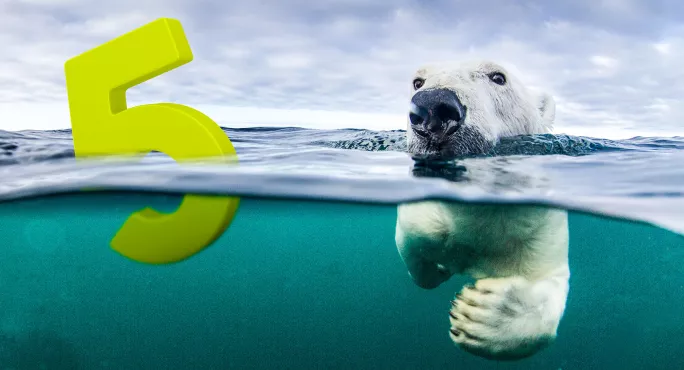Learning about climate change: 5 key issues for teachers

In 2021, I led a collaborative practitioner enquiry as the final project in my master’s degree at the University of Stirling, which led in November 2023 to recognition through an award for early career teachers.
The enquiry question asked: “In what ways can using a critical pedagogy to teach climate change in S1 personal, social and health education empower students to take individual and collective climate action?”
Five key messages emerging from this research are:
1. It is not enough to teach students about climate change - we need to empower them to act against climate change
Data from the Organisation for Economic Cooperation and Development (OECD) suggests that climate change is being increasingly included in school science curricula around the world, and that year on year, students are becoming increasingly knowledgeable about the science of climate change.
However, the same data also illuminates how learners lack the agency to be able to respond to the climate crisis. Indeed, in 2017 the OECD reported that while 79 per cent of students within OECD countries demonstrated a sound scientific understanding of the causes and consequences of climate change, only 57 per cent of students felt able to act in response to the climate emergency.
2. Concerns around climate anxiety should not cause educators to shy away from teaching about the realities of climate change
There is a school of thought within the academic literature on climate change education that the problem is so intractable, that its inclusion in curricula can lead to students becoming overwhelmed by climate anxiety and disengaging from the issue as a coping mechanism.
- Related: Make climate change a compulsory subject, says panel
- Professional development: Teacher CPD ‘vital’ in battle against climate change
- Context: 8 ways to hit Scotland’s ‘learning for sustainability’ targets
Consequently, some educators and researchers argue that young people should not be exposed to such an enormous and complex problem.
However, as advocated by the OECD, effective teaching about climate change is essential, as a world profoundly affected by climate change is an inevitable part of students’ futures.
Educators must seek to explore how climate change education can not only equip young people with knowledge but also the agency and imperative to act against a problem of such scale.
3. Making use of critical pedagogy can be a highly effective means of teaching climate change
Within my enquiry, a model of critical pedagogy was implemented, which followed the principles of Paulo Freire’s “problem-posing model” of education. It focused on: social justice, active learning and critical thinking.
The findings of this enquiry suggest that when climate change education is approached from a purely scientific perspective, this leads to vital aspects of the problem and solutions.
In other words, climate change education must look beyond science to human action and social practices in order to enable young people to think critically about the world in which they live, and not only envisage a better future for themselves but be equipped to act for change.
4. Teaching climate change through a lens of climate justice emotionally connects learners and increases their motivation
Exploring climate change through a lens of social justice afforded students the opportunity to engage emotionally with the issues. Students were able to articulate emotional responses to climate change, which centred around feelings of anger and injustice, motivating them to act for change.
Using active-learning approaches - which allowed learners to construct their own understandings of climate justice - was very successful, and building their own understandings of climate action enabled learners to consider how they could take realistic and effective climate action within their everyday lives.
Finally, promoting the development of critical-thinking skills was an important aspect of empowering learners, as this built their capacity to justify and critique approaches to climate action.
5. The process of enquiry into climate change education has also been a powerful learning experience for the teachers involved
The enquiry has also acted as a powerful learning experience for the teachers involved. Firstly, through the process of enquiry, teachers were able to critically engage with, and respond to, the policy context surrounding climate change education.
Secondly, teachers became more confident in implementing different pedagogical approaches and demonstrated a stronger ability to reflect on the impact of their practice on student learning.
Thirdly, this enquiry has demonstrated how enquiry can play an important role in fostering individual and collective teacher agency and building a whole-school culture of professional learning.
Kirstin Campbell is a principal teacher of pastoral care in Glasgow and a part-time EdD student at the University of Strathclyde. In November she won the 2023 Estelle Brisard Memorial Prize, awarded by the Scottish Educational Research Association (Sera) for the best paper written by an early-career researcher based in Scotland.
Details on how to enter the 2024 Estelle Brisard Memorial Prize are available on the Sera website
For the latest Scottish education news, analysis and features delivered directly to your inbox, sign up to Tes magazine’s The Week in Scotland newsletter
Keep reading for just £1 per month
You've reached your limit of free articles this month. Subscribe for £1 per month for three months and get:
- Unlimited access to all Tes magazine content
- Exclusive subscriber-only stories
- Award-winning email newsletters



